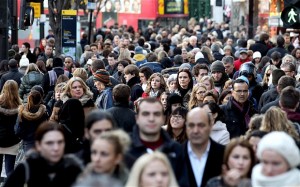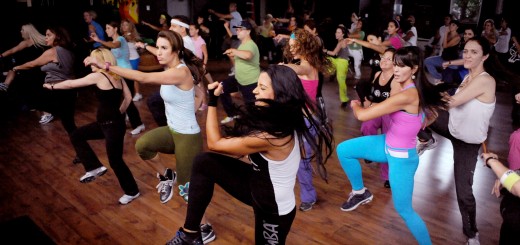Breaking down the barriers of us and them
An expert in the law: Teacher, what must I do to inherit eternal life?
Jesus: What is written in the Law? How do you read it?
The expert: ‘Love the Lord your God with all your heart and with all your soul and with all your strength and with all your mind’; and ‘Love your neighbour as yourself’.
Jesus: Do this and you will live. Based on Luke 10:25-28
 This is becoming a familiar conversation, isn’t it? People from all different walks of life come to Jesus with questions about how they should be living their lives, what they should be doing to be able to enter the kingdom of heaven. They get that it’s about following God’s rules, doing things God’s way. There’s no formula for entering the kingdom of heaven: no magic words, no set prayer, no rigid process. It all comes down to love: love God wholeheartedly and love others in the same way as you love yourself. Care for others as you care for yourself. Treat others as you treat yourself. That’s a challenge right there, isn’t it. How we treat others stems from how we view ourselves. We have to learn to love ourselves first before we have any chance of loving others.
This is becoming a familiar conversation, isn’t it? People from all different walks of life come to Jesus with questions about how they should be living their lives, what they should be doing to be able to enter the kingdom of heaven. They get that it’s about following God’s rules, doing things God’s way. There’s no formula for entering the kingdom of heaven: no magic words, no set prayer, no rigid process. It all comes down to love: love God wholeheartedly and love others in the same way as you love yourself. Care for others as you care for yourself. Treat others as you treat yourself. That’s a challenge right there, isn’t it. How we treat others stems from how we view ourselves. We have to learn to love ourselves first before we have any chance of loving others.
The Law/the rules are to be an outworking of the love that bubbles up from within and spills out into every interaction. There’s no checklist that we can work our way through and tick off each item as we do it. It’s not that simple. Well, actually, it is that simple: love God, love yourself, love others. That’s it. Simple, but extraordinarily difficult.
The expert in the above conversation knows all the rules, but knows the reality of how hard it is to actually put them into practice. He looks for a way to justify himself and so goes on to ask ‘And who is my neighbour?’.
Who is it that I actually have to be nice to?
Who is it that I actually have to treat with respect?
Who is it that I actually have to care for?
Who is it that I actually have to love?
Because if it’s my partner, then that’s fine.
Because if it’s my friends, then that’s easy.
Because if it’s my kids, then of course, loving them comes naturally.
Because if it’s my parents, then that’s part of my responsibility to them.
Because if it’s my next door neighbours, then I can do that.
In reply Jesus said: ‘A man was going down from Jerusalem to Jericho, when he was attacked by robbers. They stripped him of his clothes, beat him and went away, leaving him half dead. A priest happened to be going down the same road, and when he saw the man, he passed by on the other side. So too, a Levite, when he came to the place and saw him, passed by on the other side. But a Samaritan, as he travelled, came where the man was; and when he saw him, he took pity on him. He went to him and bandaged his wounds, pouring on oil and wine. Then he put the man on his own donkey, brought him to an inn and took care of him. The next day he took out two denarii and gave them to the innkeeper. ‘Look after him,’ he said, ‘and when I return, I will reimburse you for any extra expense you may have.’
Which of these three do you think was a neighbour to the man who fell into the hands of robbers?
The expert in the law replied, ‘The one who had mercy on him.’
Jesus told him, ‘Go and do likewise.’ Luke 10:30-37
 A mugging, that’s something we can relate to. These attacks still happen in the streets of our towns and cities just like they did in Jesus’ day. And there’ll always be some people who will look the other way, that will get away from the scene as fast as possible: people who don’t want to get involved, don’t want to get their hands dirty, have somewhere important they need to be. They don’t have the time. They’re scared they won’t know what to do, scared they might make it worse. They’ll leave it to the professionals. Someone else will know what to do.
A mugging, that’s something we can relate to. These attacks still happen in the streets of our towns and cities just like they did in Jesus’ day. And there’ll always be some people who will look the other way, that will get away from the scene as fast as possible: people who don’t want to get involved, don’t want to get their hands dirty, have somewhere important they need to be. They don’t have the time. They’re scared they won’t know what to do, scared they might make it worse. They’ll leave it to the professionals. Someone else will know what to do.
And then there are those (the few) who show mercy. Who look beyond difference. Who act out of compassion and empathy, who treat the other as they would want someone to treat them in that situation.
All the barriers of us and them are broken down. There’s a human to human connection. Personal safety and inconvenience are put to one side.
It all comes down to mercy again. When your heart goes out to someone and you actually act upon that feeling. You don’t do whatever needs doing simply because it’s the right thing to do, because it will make you look good and feel good. It’s not about looking down on people who need your help from a position of superiority. That’s no help at all. People can see through that kind of help. There’s no sense of personal gain here. Anyone who’s seen ‘The Greatest Showman’ in the last couple of weeks will know exactly what I’m referring to here. Barnum’s portrayed as a man with mixed motives, a character who loses sight of what led him to bring his ‘freaks’ out of the shadows in the first place. Until they are the ones to show mercy and forgiveness and give him a second chance…
There’s another story in Luke 14 that’s relevant here too. Relevant to the Barnum story. Barnum gets caught up in the desire to belong, to be respected and admired by those whose opinion really matters – the rich and sophisticated. if Barnum was to hold a great banquet as Jesus describes in his story, chances are the excuses would come rolling in, just like in this parable. Those who are invited have ‘reasons’ they can’t attend and so the man invites anyone who will come.
Then the owner of the house became angry and ordered his servant, ‘Go out quickly into the streets and alleys of the town and bring in the poor, the crippled, the blind and the lame.’
‘Sir,’ the servant said, ‘what you ordered has been done, but there is still room.’
Then the master told his servant, ‘Go out to the roads and country lanes and compel them to come in, so that my house will be full. I tell you, not one of those who were invited will get a taste of my banquet.’ Luke 14:21-24
 There is room in the kingdom of heaven for all who want to be a part of this revolutionary, exciting upside down kingdom. And so there should be room at our table for all who want to come – not just the in crowd, the people like us, the people that make us feel good about ourselves. It’s about extending an invite to the ‘them’ as well as the ‘us’. Because when you get to know someone, really get to know them, they soon transform from being one of them to being one of us. We are all equal. We are all human. Everyone is my neighbour.
There is room in the kingdom of heaven for all who want to be a part of this revolutionary, exciting upside down kingdom. And so there should be room at our table for all who want to come – not just the in crowd, the people like us, the people that make us feel good about ourselves. It’s about extending an invite to the ‘them’ as well as the ‘us’. Because when you get to know someone, really get to know them, they soon transform from being one of them to being one of us. We are all equal. We are all human. Everyone is my neighbour.
‘Go and do likewise.’












